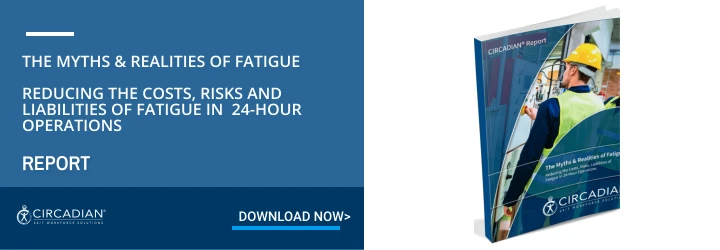The Impact of Operator Fatigue
- Irregular Hours: Disrupted circadian rhythms from irregular work schedules make it challenging to maintain healthy sleep patterns.
- Isolation: Extended hours spent alone on the road can heighten feelings of fatigue.
- Monotonous Tasks: Repetitive tasks can lead to mental fatigue and decreased alertness over time.
- Stress and Workload: High levels of stress and demanding workloads contribute to both physical and mental exhaustion.
A robust approach to addressing operator fatigue is to implement a Fatigue Risk Management System (FRMS). This structured framework helps monitor and mitigate fatigue-related risks, enhancing operator safety.
The Five Defenses of an FRMS
- Workload Staffing: Ensure that staffing levels are appropriate to allow for adequate rest periods.
- Scheduling: Develop schedules that prioritize sleep opportunities and prevent excessive work hours.
- Training: Offer education programs to raise awareness about the dangers of operator fatigue and teach effective fatigue management strategies.
- Work Environment: Create a work environment that is conducive to reducing stress and encouraging regular breaks.
- Fatigue Monitoring: Implement tools and technologies that detect impairment in real-tim
- Circadian Friendly Scheduling: Shift scheduling practices including speed and direction of rotation can affect fatigue risk in safety sensitive operations.
- Regular Breaks: Scheduling adequate breaks during shifts can help maintain alertness and reduce fatigue.
- Education Programs: Training employees about the risks of drowsy driving and the importance of sleep can foster a safety-focused culture.
- Management Training: Equip management with the knowledge to support fatigue management initiatives effectively.
Circadian has over 30 years of experience in designing, developing, and implementing FRMS across various safety-sensitive industries, including trucking, aviation, rail, and marine.
Our services extend to:
- Fatigue Investigations: Supporting safety departments and providing insights into fatigue-related incidents.
- Training and Consultation: Offering tailored training programs for both operators and management to ensure a culture of safety.
- Shift Schedule Optimization: Designing shift schedules that support extended hours operations without sacrificing the health or morale of employees.
Addressing operator fatigue is essential for enhancing safety in the transportation industry. By prioritizing effective fatigue management strategies, organizations can protect their workers and the public while improving productivity and reducing costs.
If you're interested in learning more about implementing a fatigue risk management system or how Circadian can assist with your safety needs, visit our website or contact our team today. Together, we can make meaningful strides toward reducing fatigue-related accidents and promoting a safer workplace.



